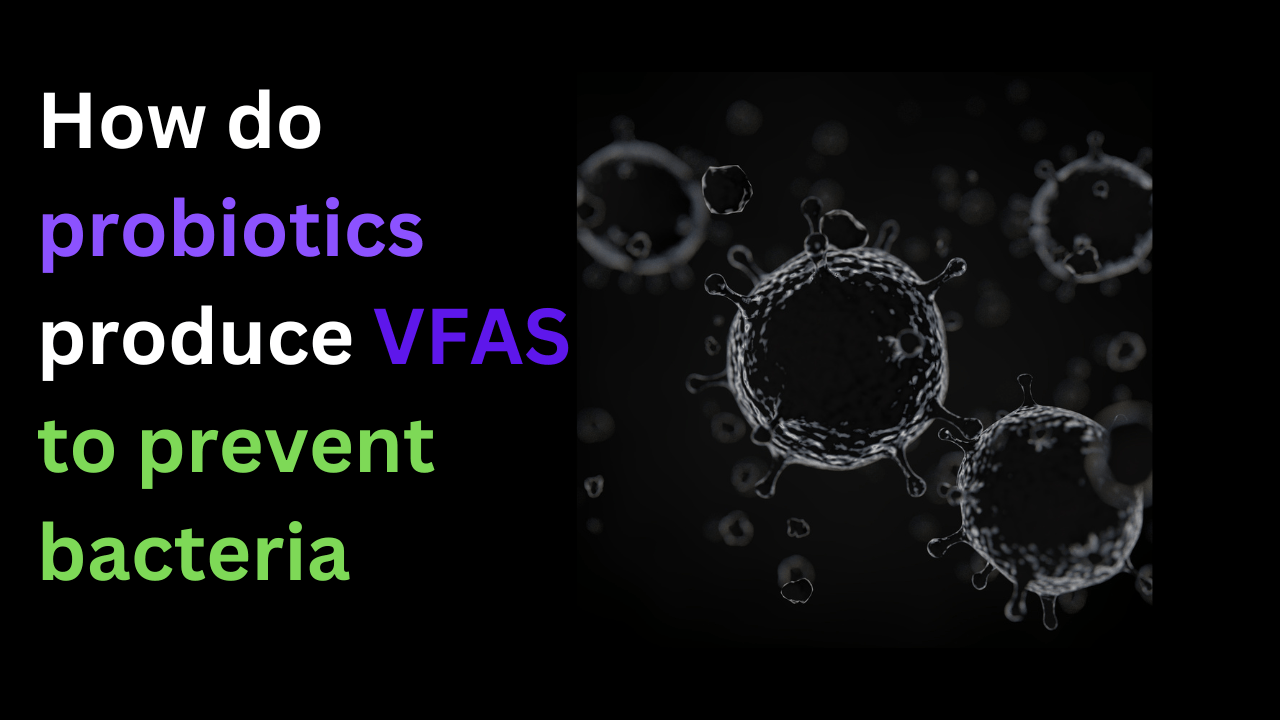Probiotics, the beneficial microorganisms residing in your gut, play a vital role in maintaining your health. One of their primary functions is the production of volatile fatty acids (VFAs), which are critical in combating harmful bacteria.
What Are Probiotics and VFAs?
Probiotics Explained
Probiotics are live microorganisms, including bacteria and yeasts, that offer health benefits when consumed in adequate amounts.
They are commonly found in fermented foods like yogurt, kefir, and sauerkraut. These microorganisms help balance your gut microbiota. This is the community of microbes living in your digestive system.
What Are Volatile Fatty Acids (VFAs)?
VFAs are short-chain fatty acids (SCFAs) like acetate, propionate, and butyrate. These compounds are byproducts of carbohydrate fermentation by probiotics in the gut.
VFAs serve as an energy source for your colon cells. They also have antimicrobial properties that inhibit harmful bacteria.
How Probiotics Produce VFAs
The Fermentation Process
Probiotics metabolize dietary fibers and resistant starches that your body can’t digest. During this fermentation process, they break down complex carbohydrates into simpler compounds, resulting in the production of VFAs.
The key steps include:
- Fiber Fermentation: Probiotics utilize non-digestible fibers as their energy source.
- SCFA Production: Through enzymatic activity, fibers are converted into VFAs like acetate, propionate, and butyrate.
- Release into the Gut: These VFAs are released into the colon, where they interact with the gut environment.
Key Probiotics Strains Involved
Certain strains of probiotics are particularly effective at producing VFAs:
- Lactobacillus: Known for its ability to ferment lactose and fibers into lactic acid and acetate.
- Bifidobacterium: Efficient in producing acetate and butyrate from dietary fibers.
- Eubacterium: A butyrate-producing bacteria that contributes to gut health.
How VFAs Prevent Harmful Bacteria
Lowering Gut pH
VFAs reduce the pH level in the gut. This creates an acidic environment that is inhospitable to pathogenic bacteria like Escherichia coli and Clostridium difficile. Most harmful bacteria struggle to survive in low-pH conditions, giving probiotics a competitive advantage.
Disrupting Pathogen Growth
VFAs can directly inhibit the growth of harmful bacteria by:
- Disrupting bacterial cell membranes.
- Interfering with their energy production mechanisms.
Strengthening the Gut Barrier
Butyrate, a key VFA, promotes the production of mucus in the intestinal lining. This mucus acts as a physical barrier against harmful bacteria. Additionally, it strengthens tight junctions between gut cells, reducing the risk of infections.
Health Benefits of VFAs
The production of VFAs by probiotics offers many health benefits beyond combating harmful bacteria:
- Improved Digestion: VFAs enhance nutrient absorption and bowel regularity.
- Anti-inflammatory Effects: They reduce inflammation in the gut, alleviating symptoms of conditions like irritable bowel syndrome (IBS) and Crohn’s disease.
- Boosted Immune Function: VFAs stimulate the production of regulatory T-cells, which help modulate immune responses.
How to improve VFA Production
To maximize VFA production and enjoy its benefits, follow these tips:
Include Fiber-Rich Foods
Consume high-fiber foods like:
- Whole grains
- Fruits and vegetables
- Legumes
Choose Probiotic-Rich Foods
Incorporate fermented foods into your diet, such as:
- Yogurt
- Kefir
- Kimchi
- Pickles
Avoid Excessive Antibiotic Use
Antibiotics can disrupt the balance of gut microbiota, reducing the population of beneficial probiotics.
FAQs
1. What are the best probiotics for VFA production?
Lactobacillus and Bifidobacterium strains are highly effective at producing VFAs.
2. Can VFAs improve mental health?
Yes, VFAs, especially butyrate, have been linked to improved gut-brain communication, which can positively impact mental health.
3. How long does it take for probiotics to start producing VFAs?
Probiotics can start fermenting fibers within hours of reaching the gut. They produce VFAs quickly, but noticeable health benefits may take a few weeks.
